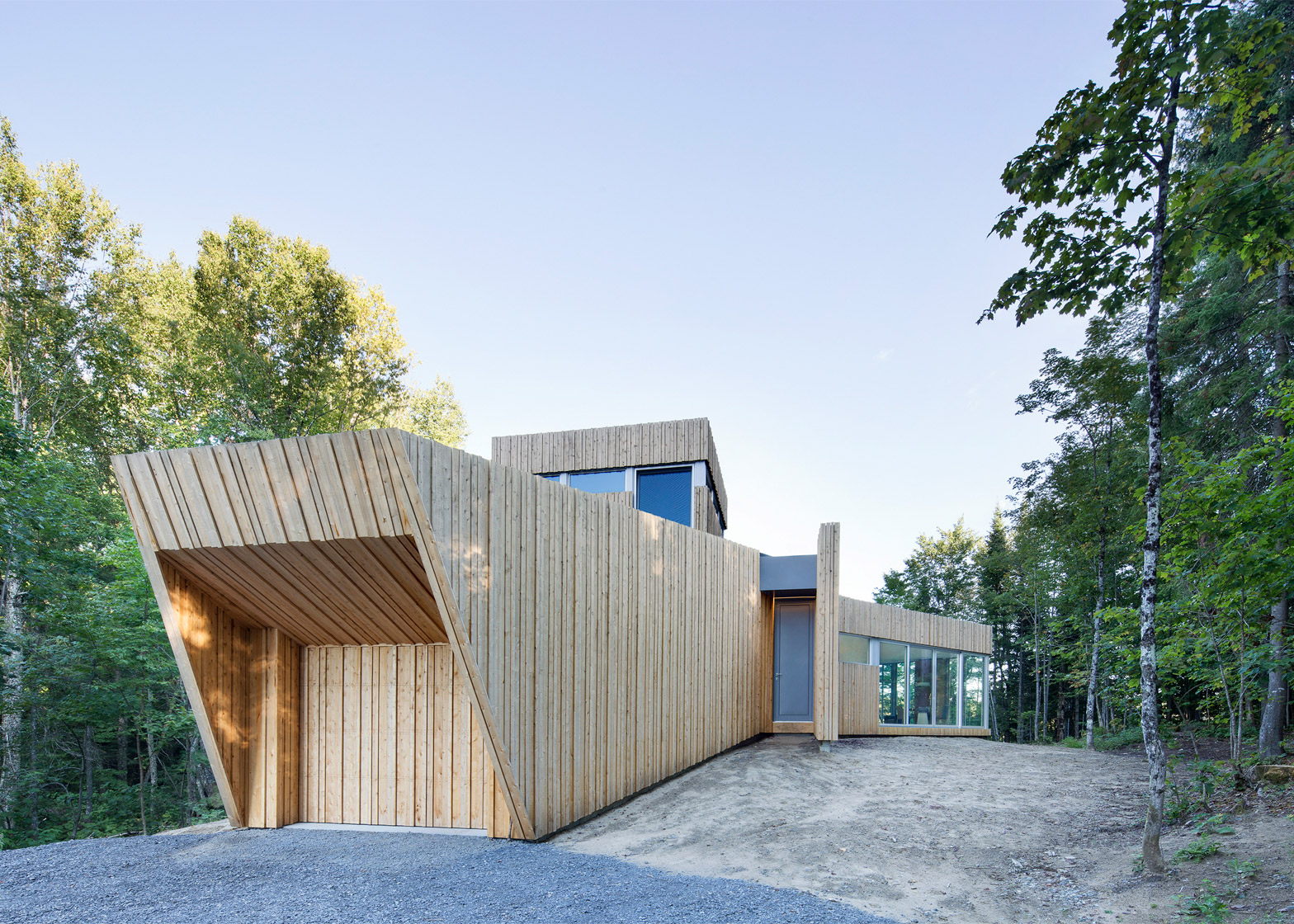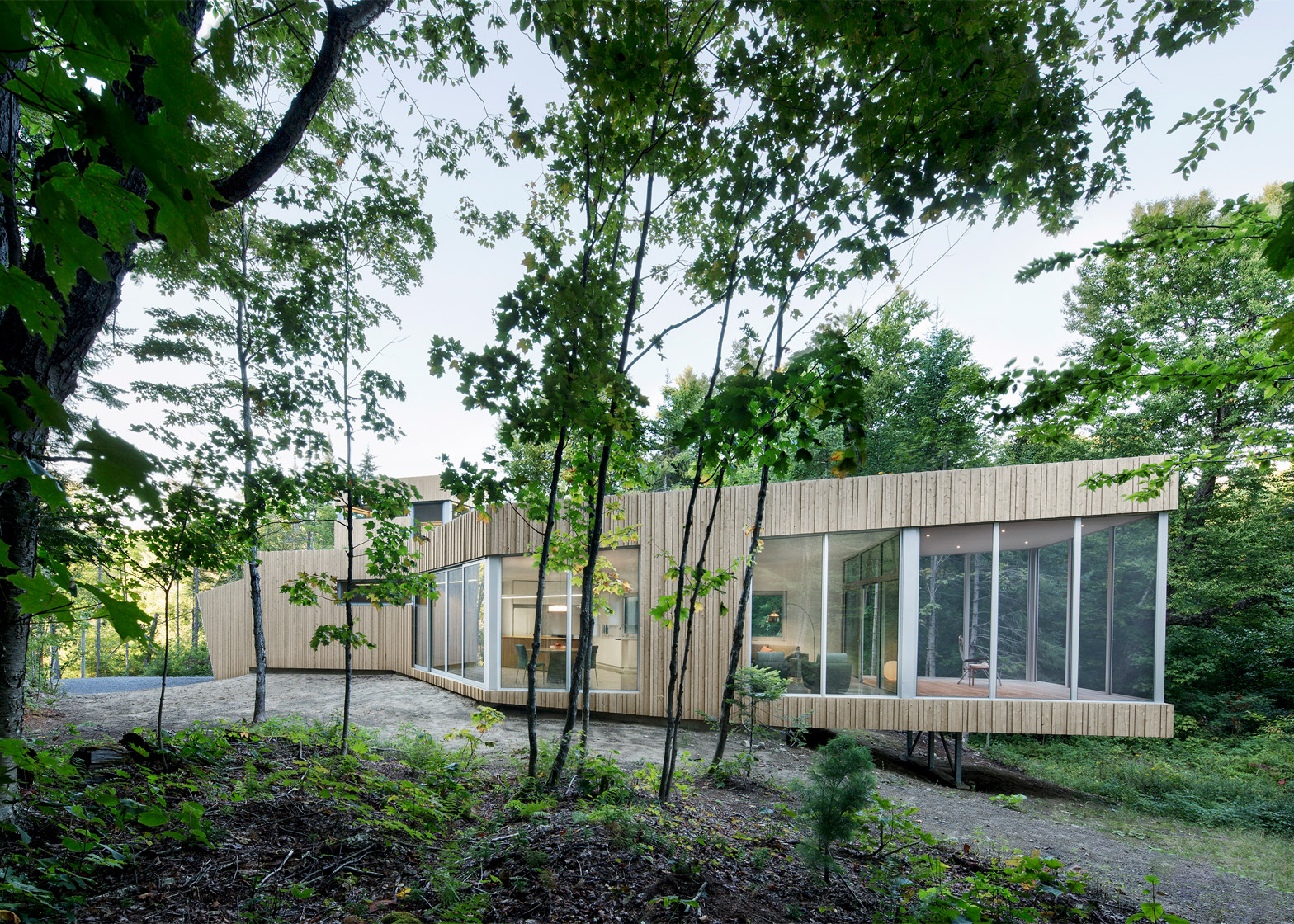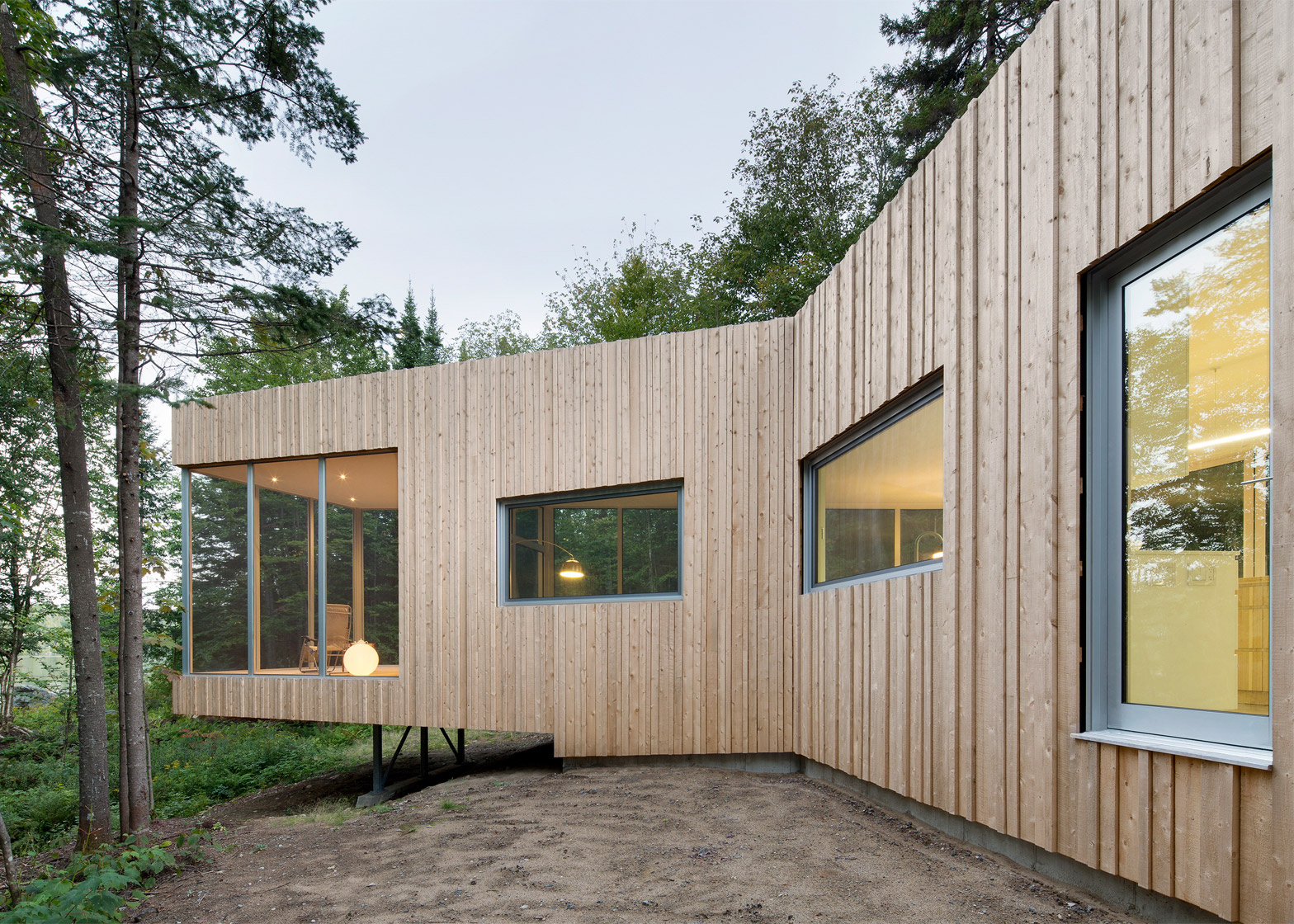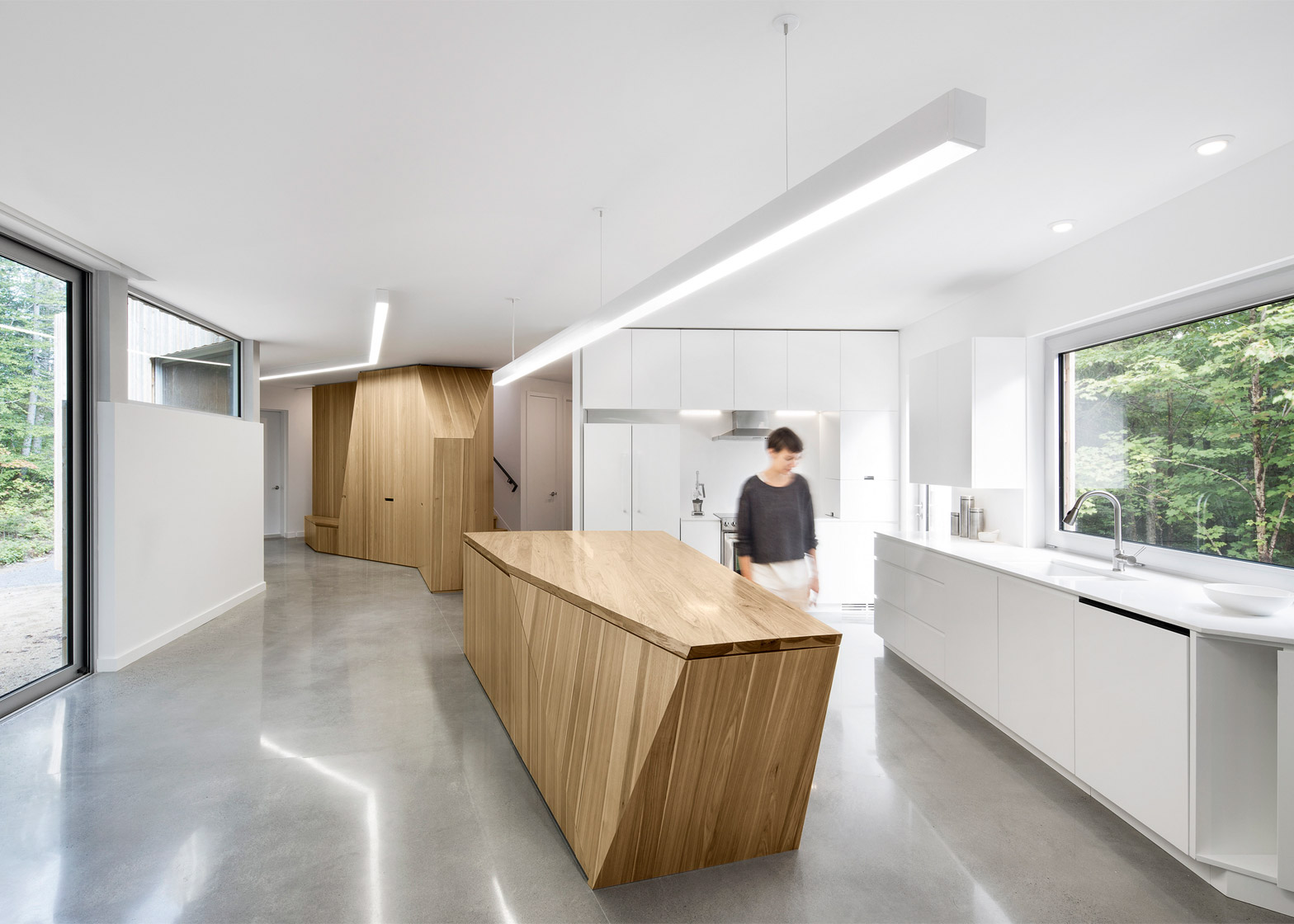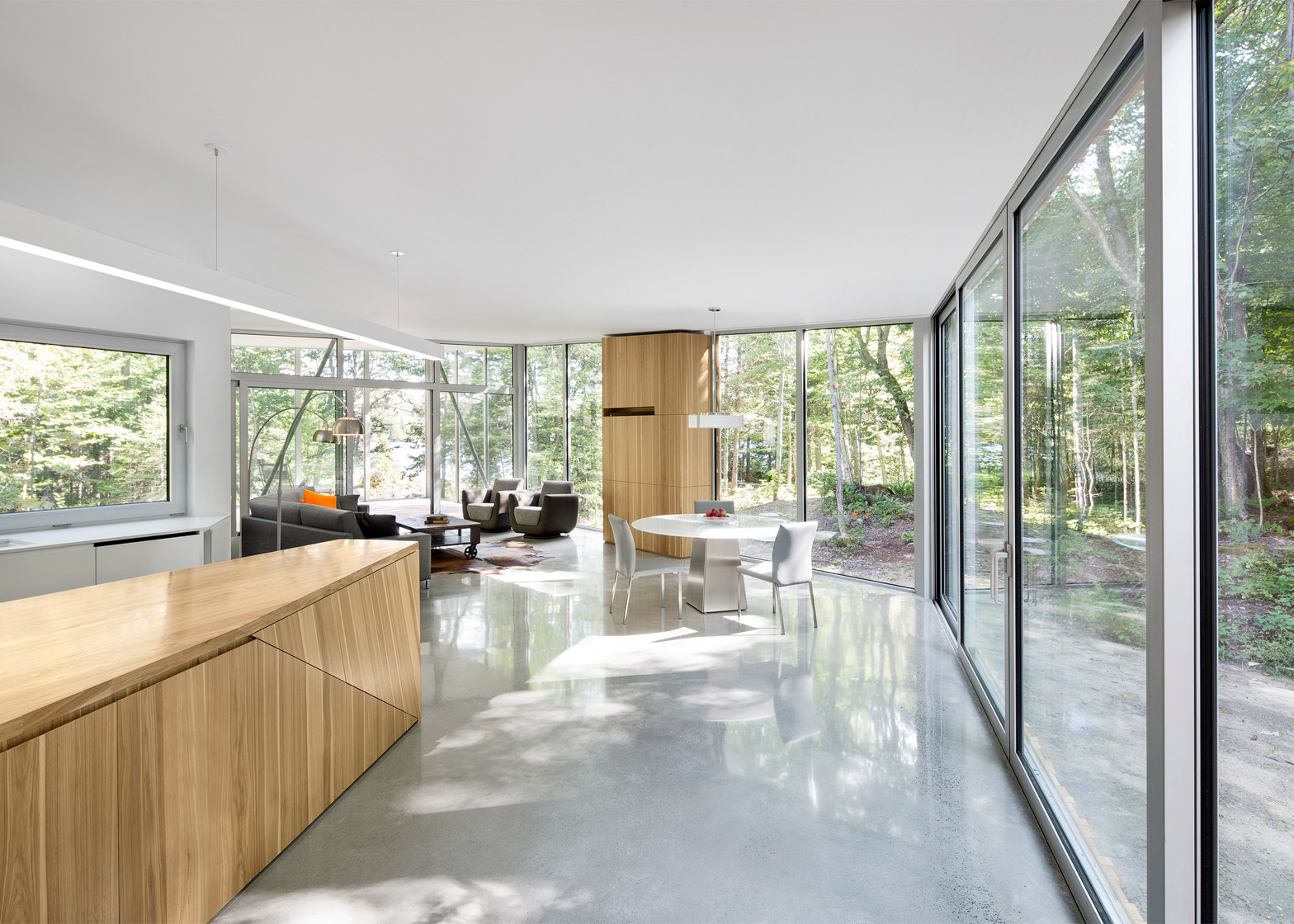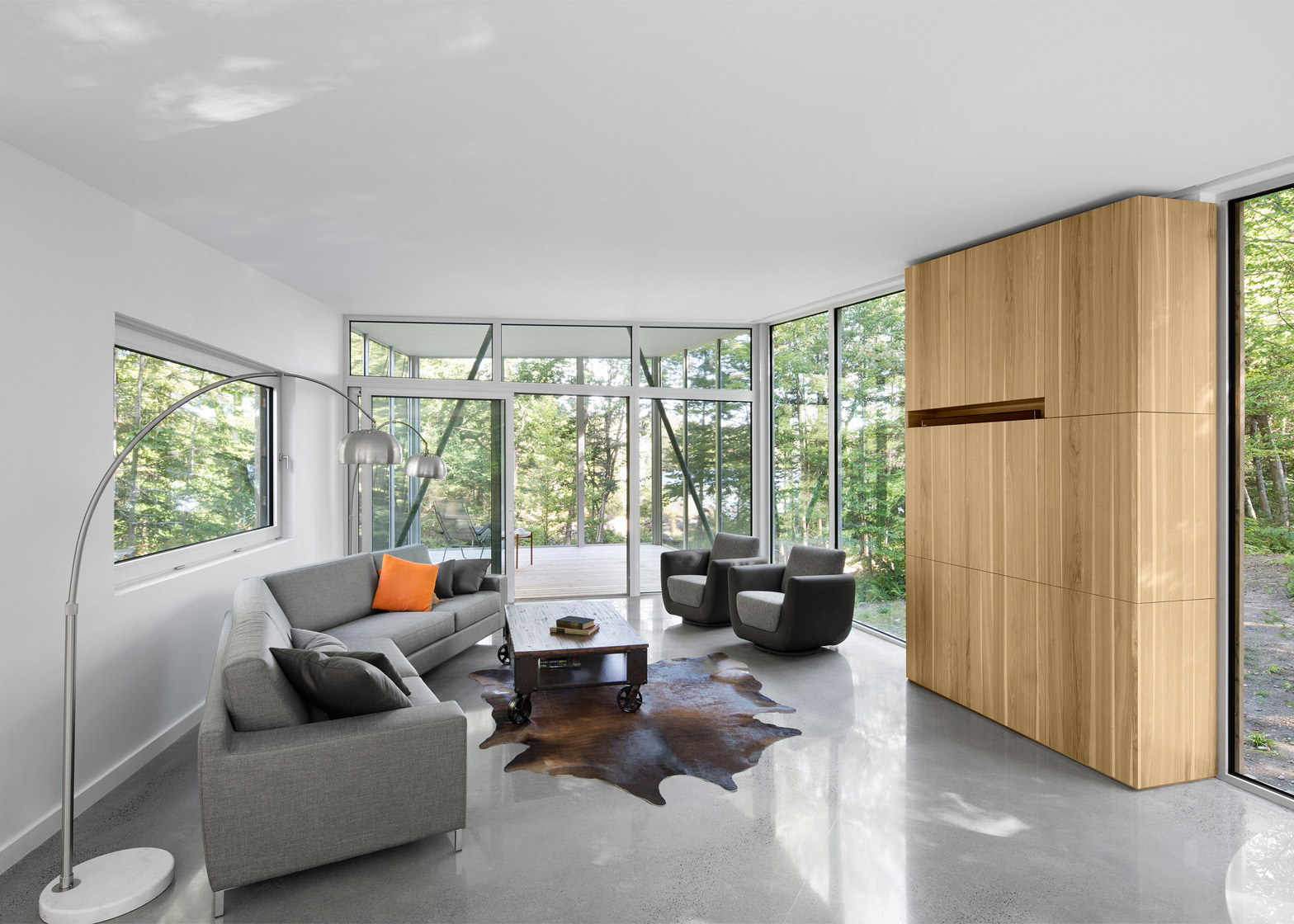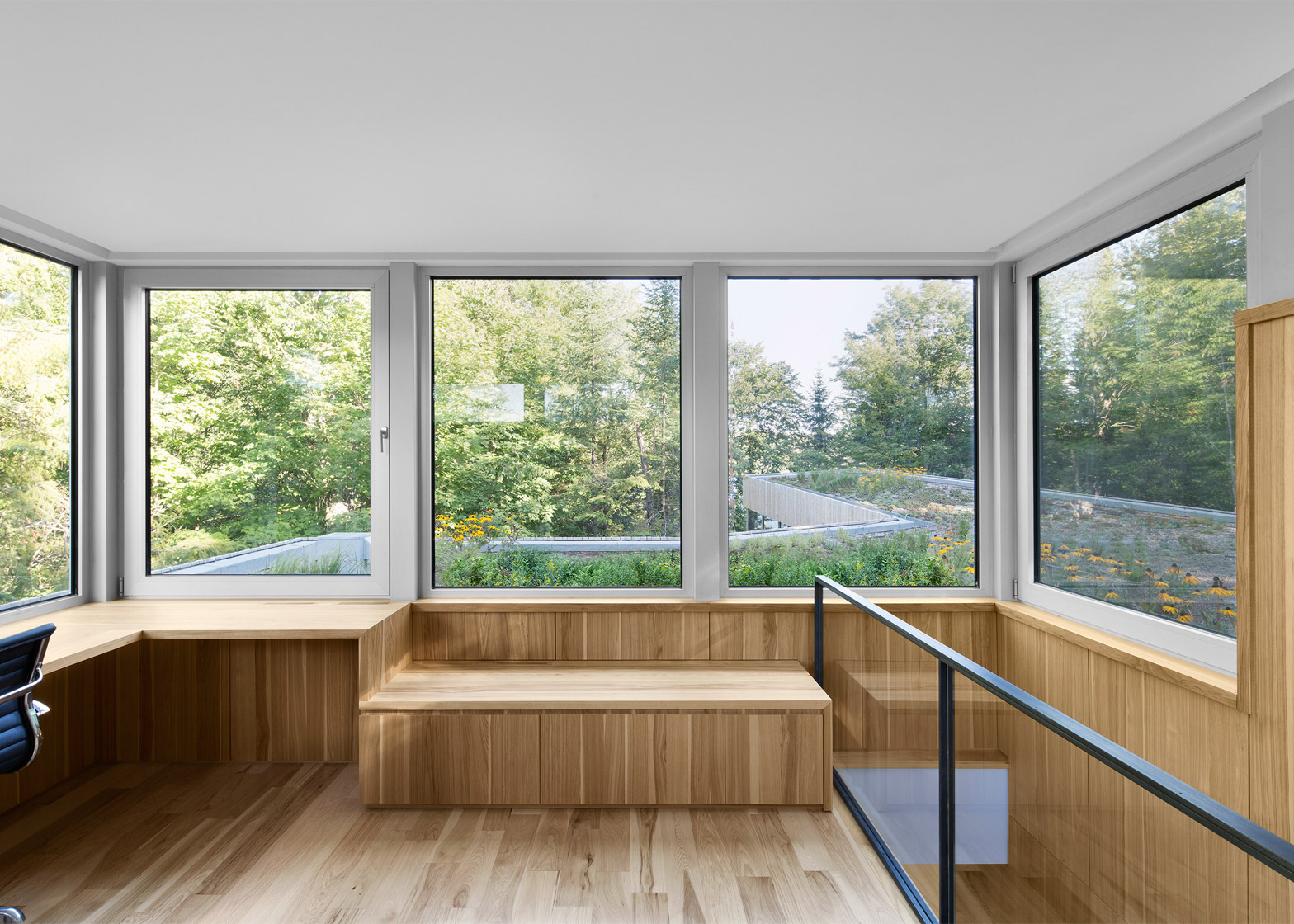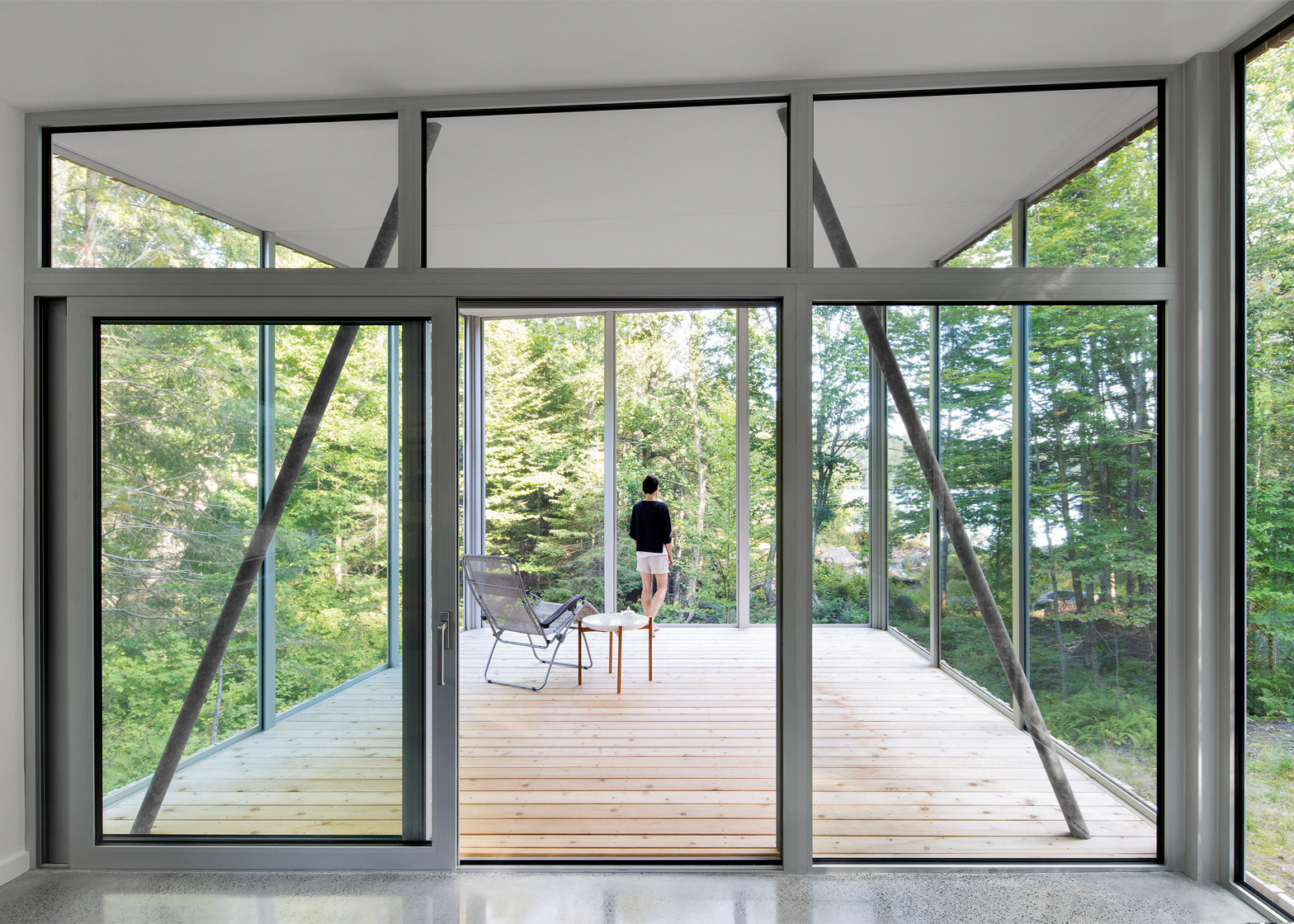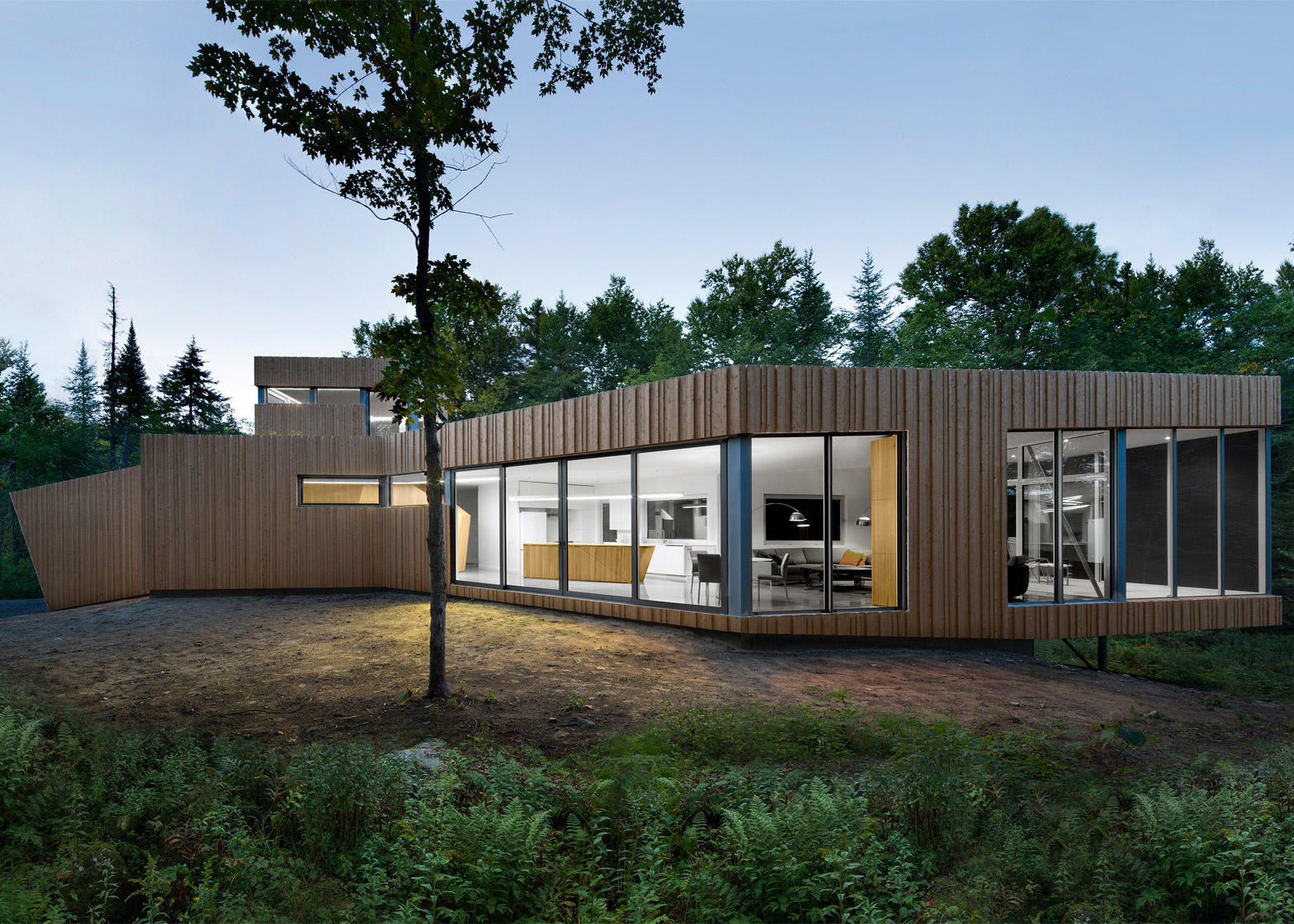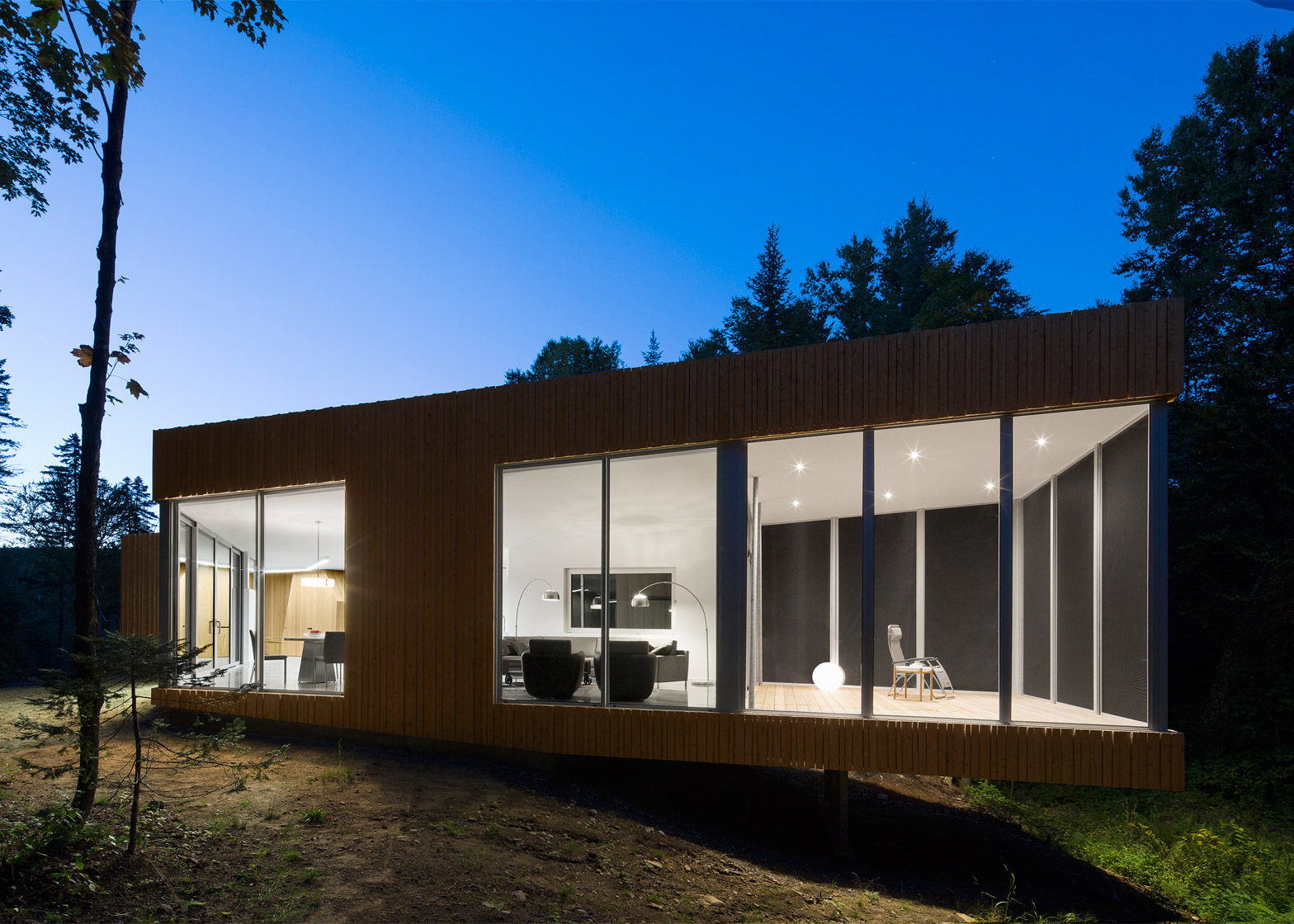The glazed living space of this cedar-clad cabin near Montreal projects over a woodland slope to optimise views of a nearby lake (+ slideshow).
Local architect Paul Bernier based the building's crooked form and situation on the site's topography, placing it lengthwise between a slope and a stream on the wooded plot, which sits on the shoreline of Grenier Lake.
The primary living spaces of House on Lac Grenier are arranged over one storey, giving the building a low profile, while a wood-lined reading room protrudes from the building's green roof and utility spaces are situated in the basement.
"Our clients have owned this property for a number of years. They know it well and love its varied features," said Bernier. "They were looking for a sustainable and site-sensitive project that would preserve its topography, vegetation, and natural appearance."
"Its meandering shape is determined by the opportunities offered by the surrounding landscape," he added. "The structure bends, opens, and narrows like a river carving its own path."
Cedar slats of varying widths and thicknesses are arranged vertically around the building's angular facade, which results in a lightning bolt-shaped floor plan.
The timber siding and green roof is intended to help the structure blend into its surroundings.
"With time, as the cedar slats fade and the trees and ground cover grow back in around the building, architecture and nature will intermingle," said the architect. "Nature will also be invited to cover the building itself, thanks to its green roof. Seen from the rooftop study or the hill, the structure will blend into its natural environment."
A garage with a slanted facade sits in a dip at one end of the building. The entrance to the house is wedged in a gap between two timber walls to its rear, giving the impression that the timber cladding has been pried away from the the facade to insert the door.
Inside, Bernier used hickory wood cabinetry to mirror the building's faceted exterior, while bright white walls and polished cement floors intentionally contrast the rugged terrain.
Three wooden storage units divide the building into sleeping, dining and lounging areas.
A large wooden unit by the entrance features a built-in seat and a hanging area for coats and bags. Behind it sits two double bedrooms and a matching wooden staircase that leads to the "treehouse-like" reading room.
"During summer, the trees, like the green roof, create a natural screen to shield the house from heat," said the architect. "In winter when the leaves have fallen, sunlight filters through the forest and floods the space with warmth and light."
Downstairs, an irregularly-shaped island sits in the centre of the kitchen, where a set of glass doors slide open into an entirely glazed lounge. This section of the house is propped up on legs over the slope, giving views over the mouth of the stream and lake.
Atelier Oslo took a similar approach in its design of a hillside cabin, which overlooks a Norwegian lake.
A third piece of cabinetry – a boxy shelving unit – acts as a visual partition between the dining and sitting areas of the space.
"The large open area is occupied by three wooden masses," explained the architect. "They are placed along an axis that draws one through the sequence of spaces that make up the living area."
"Their functions are barely legible, allowing them to remain as abstract as possible in order to emphasise only their form, material, and relationship to one another."
Photography is by Adrien Williams.
Project credits:
Architecture: Paul Bernier architect
Architectural team: Paul Bernier, Anick Thibeault
Structure: Calculatec Inc.
Engineer: Alain Mousseau
Contractor: Léonald Goyette

